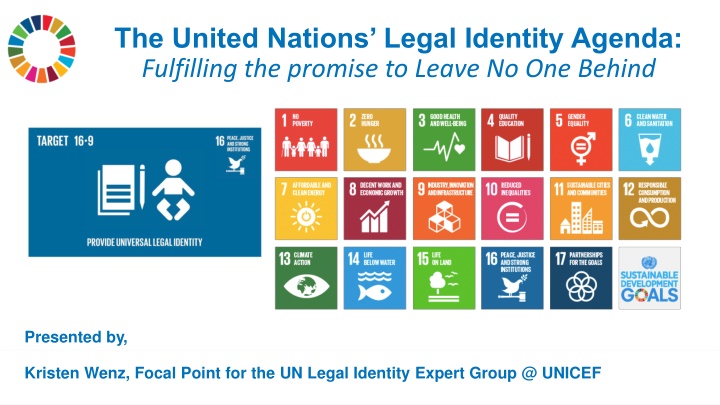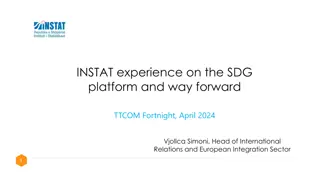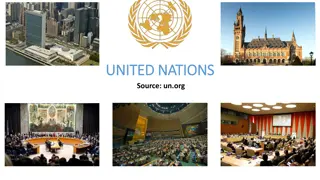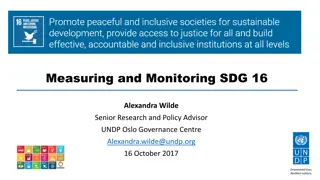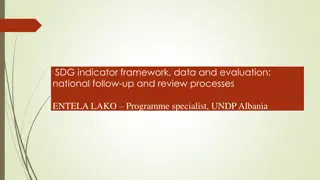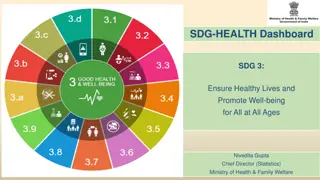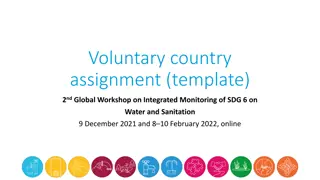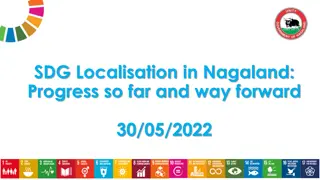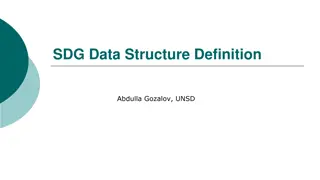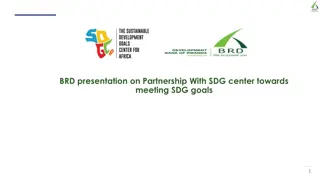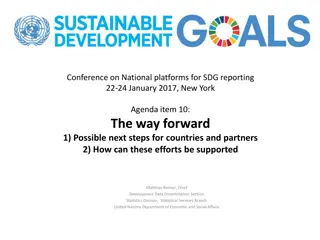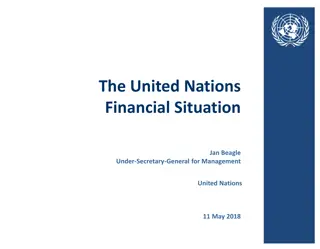United Nations Legal Identity Agenda: Achieving SDG 16.9
The United Nations Legal Identity Expert Group (LIEG) aims to close the global legal identity gap by over 300 million within four years. The group focuses on implementing a life-cycle approach to legal identity, starting from birth, to ensure no one is left behind. The structure and strategy of LIEG include pillars such as coordinated implementation, evidence-based action, unified messaging, and financing initiatives. Through collaboration among various UN agencies, the agenda seeks to address barriers to legal identity for vulnerable populations and promote awareness of SDG 16.9.
Download Presentation

Please find below an Image/Link to download the presentation.
The content on the website is provided AS IS for your information and personal use only. It may not be sold, licensed, or shared on other websites without obtaining consent from the author.If you encounter any issues during the download, it is possible that the publisher has removed the file from their server.
You are allowed to download the files provided on this website for personal or commercial use, subject to the condition that they are used lawfully. All files are the property of their respective owners.
The content on the website is provided AS IS for your information and personal use only. It may not be sold, licensed, or shared on other websites without obtaining consent from the author.
E N D
Presentation Transcript
The United Nations Legal Identity Agenda: Fulfilling the promise to Leave No One Behind Presented by, Kristen Wenz, Focal Point for the UN Legal Identity Expert Group @ UNICEF
UN Legal Identity Agenda; Fulfilling the promise to Leave No One Behind As requested by the UN Secretary General the Deputy SG called for a coherent approach to legal identity across the UNDS on the issue of functional and legal identity and to strengthen collaboration with the Word Bank The United Nations Legal Identity Expert Group (LIEG)was formed on 28th September. Purpose: Take the necessary actions by UN agencies to drive a coherent and effective response in supporting member states to achieve in achieving SDG 16.9 with a benchmark goal of reducing the global legal identity gap by over 300 million within four years. Calling for a life-cycle approach to legal identity by establishing universal and inclusive legal identity systems starting from birth.
Structure and Strategy and Workplan for the LIEG Co-Chairs: UNICEF, UNDP, DESA Members: UNHCR, DOCO, IOM, OHCHR, UNFPA, UNICEF, UNDP, DESA, WFP, ESCAP, ECA, UN Women and WHO Pillar 1: A Coordinated Approach for Implementation Pillar 2: Evidence for Action Pillar 3: One Voice Pillar 4: Financing the Implementation of Legal Identity for All
A coherent UN approach to legal identity Build on the existing work from the global, regional and country level to define a common understanding between of the United Nations System. Build on the comparative advantage of each agency to support the implementation of programs aimed to strengthen legal identity systems through the life cycle- starting from birth. Examples: UN Principals for Legal Identity Guidance for UNCT for joint implementation of legal identity programs across sectors
Evidence for Action Closing the Gaps. Identify emerging issues and barriers for legal identity for vulnerable populations. Include recommend actions to address these barriers. Key areas of focus include: Joint Working Papers to build consensus and evidence on legal identity as key to Leaving No One Behind The Costs of Inaction: Economic and Social Implications of Not Having A Legal Identity From Birth Legal Identity in the Humanitarian Development Nexus
One Voice Develop common messaging at the highest level to create awareness and generate support for achieving SDG 16.9 as key to fulfilling the promise to Leave No One Behind. Advocacy content and messaging will be disseminated at high level events. Develop Joint Communications and Advocacy Content and Messaging Champions for Legal Identity Joint LIEG-World Bank Media, Talking Points and Key Messages for High-Level Panels
Financing the Implementation Joint Funding. A dedicated funding window such as in the 2030 Fund or a Multi donor trust fund will be established to advance the joint implementation of integrated legal identity systems . The joint fund will enable a streamlined and coordinated engagement with donors including the private sector partners to take forward the joint actions to achieve the goal of closing the identity gap by 300 million in four years.
Technical support Technical Oversight. A technical advisory committee will be established to support the UNCT applications and submissions for financing. A technical support team will work in collaboration with UNDOCO to review and suggest opportunities to strengthen proposals submitted by UNCT to support country teams in accessing resources.
Pilot Phase 1: Focus on Africa Project development and implementation - Supporting existing WBG financed projects in West Africa - Identifying at least 5 African States where UN implementing agencies will lead the development of pilot projects in collaboration with their government counterparts for piloting the joint UN programme implementation project to advance SDG 16.9 - Leveraging additional support for taking the UNCT life-cycle model to scale and reach the goal of reaching 300 million people with a legal identity, starting from birth.
